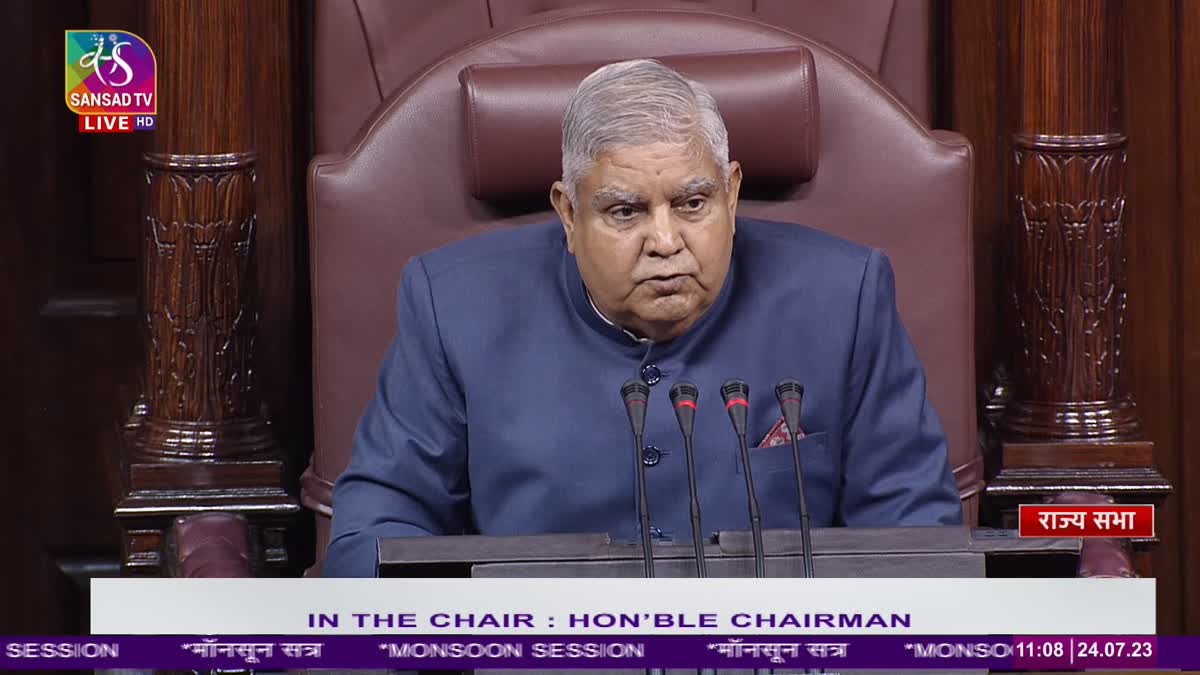New Delhi:The political atmosphere in the Indian Parliament turned tense as the Centre and Opposition parties engaged in heated debates over crimes against women and the ethnic violence in Manipur. The issue escalated as several Opposition MPs, belonging to different parties, submitted strongly-worded adjournment notices in both the Lok Sabha and the Rajya Sabha for three consecutive working days.
In a separate show of protest, BJP MPs from Rajasthan gathered near the Gandhi statue in the Parliament House premises to express their concern over growing atrocities against women in Rajasthan. The opposition demanded immediate dismissal of Congress government in Rajasthan.
Simultaneously, MPs from the Opposition alliance INDIA also gathered at the Gandhi statue, demanding that Prime Minister Narendra Modi address the situation in Manipur and suspend the N Biren Singh-led government in the state.
The Rajya Sabha Chairman, Jagdeep Dhankar, reported that he received a total of 11 notices for discussion under Rule 176 and 27 under Rule 267 that day. BJP MPs Sudhanshu Trivedi and Sushil Modi had submitted notices to raise discussions on the violence that occurred during the Panchayat elections in West Bengal. In response to the intense protests and disagreements, both houses were adjourned until 12 pm.
The Rajya Sabha Chairman, Jagdeep Dhankar, has been reluctant to allow any motion under Rule 267 during his term, stating that such motions often lead to disruptions. The Opposition, however, firmly believes that MPs should be permitted to speak on the issue without any time-limit, and all other business should be suspended for the day. Infact, this rule gives a Rajya Sabha MP special power to suspend the pre-decided agenda of the House, with the approval of the Chairman.
On the other hand, the Centre insists on Rule 176, which permits short-duration discussions not exceeding two-and-a-half hours on a particular issue. Under this rule, any member desiring to raise a discussion on a matter of urgent public importance must submit a written notice to the Secretary-General, clearly specifying the matter and accompanied by an explanatory note justifying the discussion. The notice must also be supported by the signatures of at least two other members.
